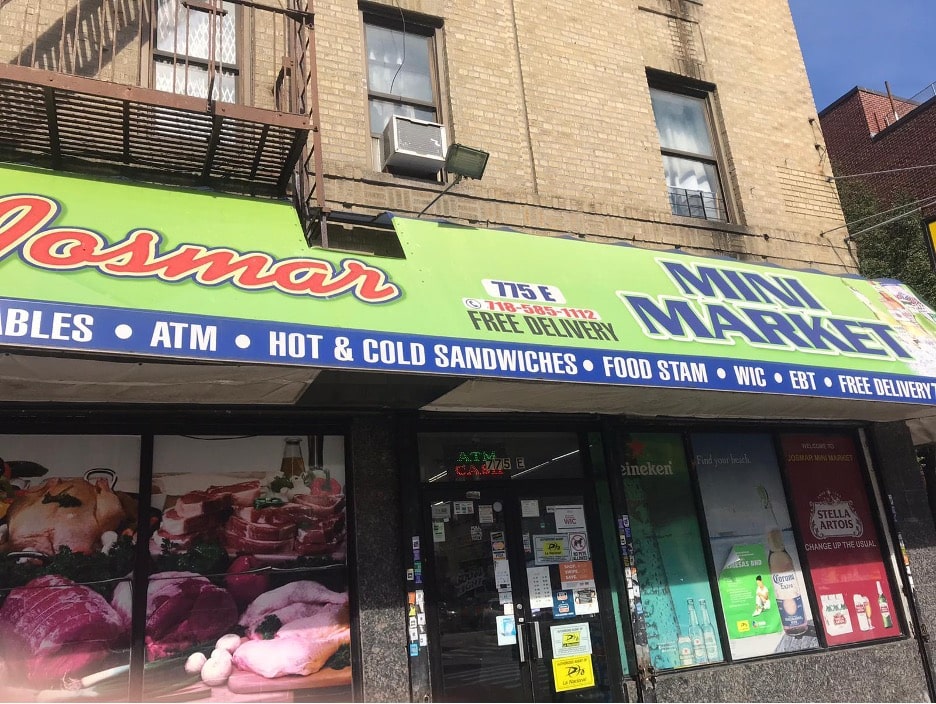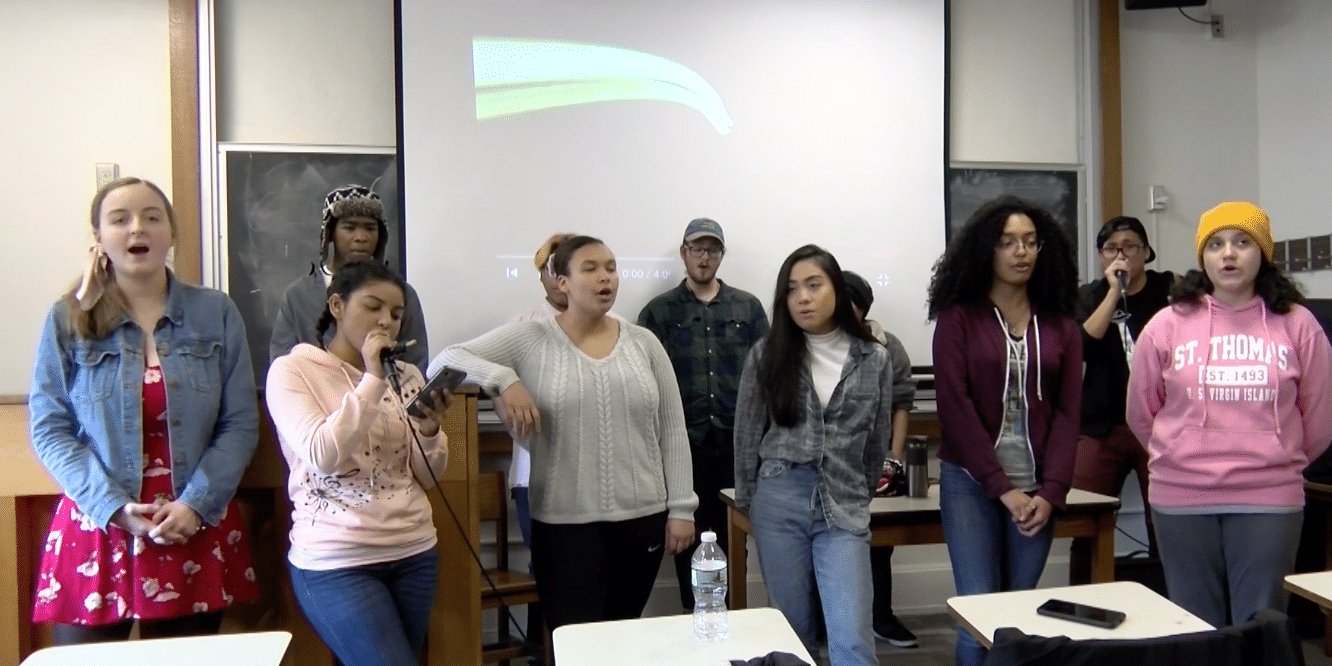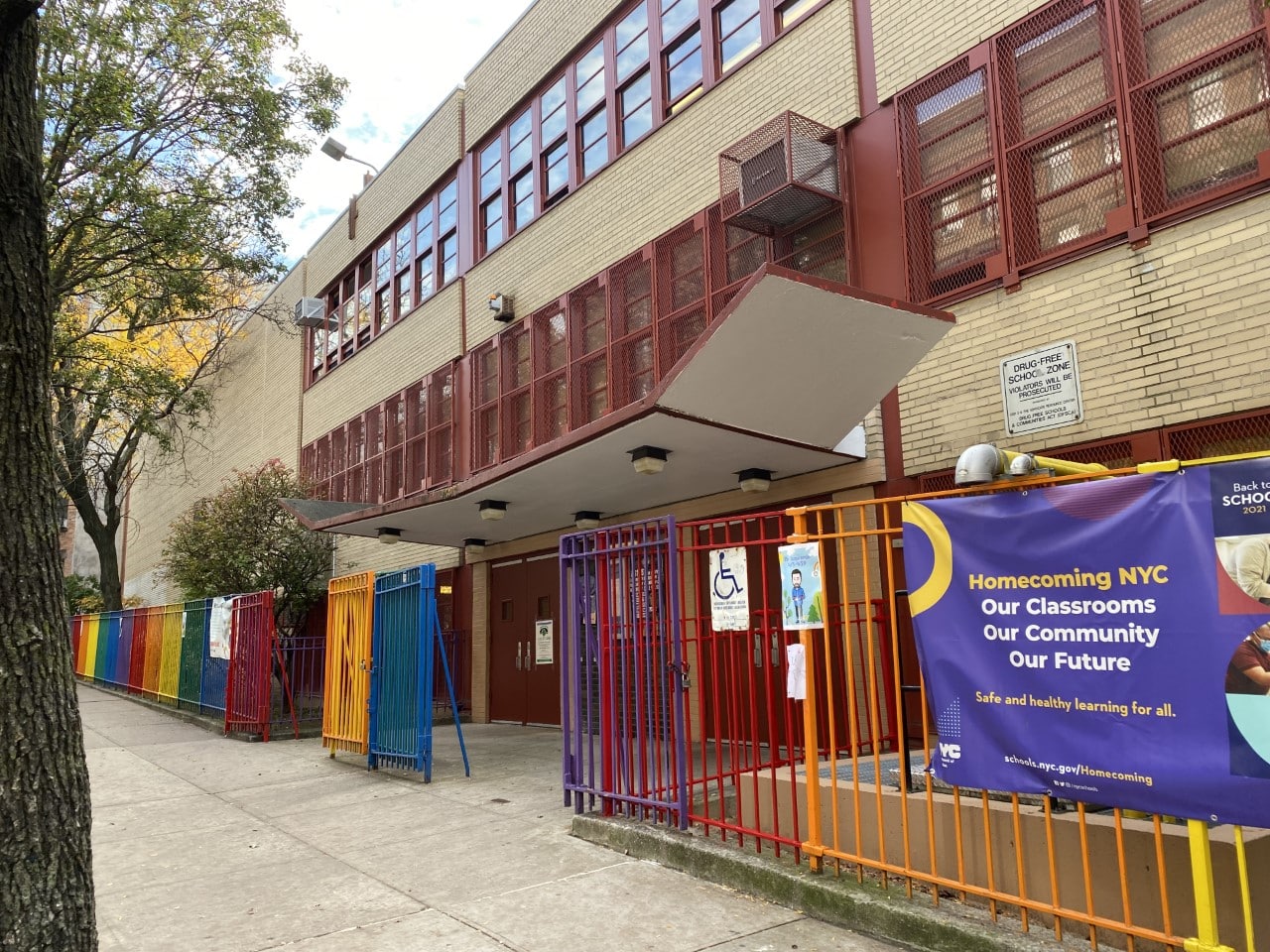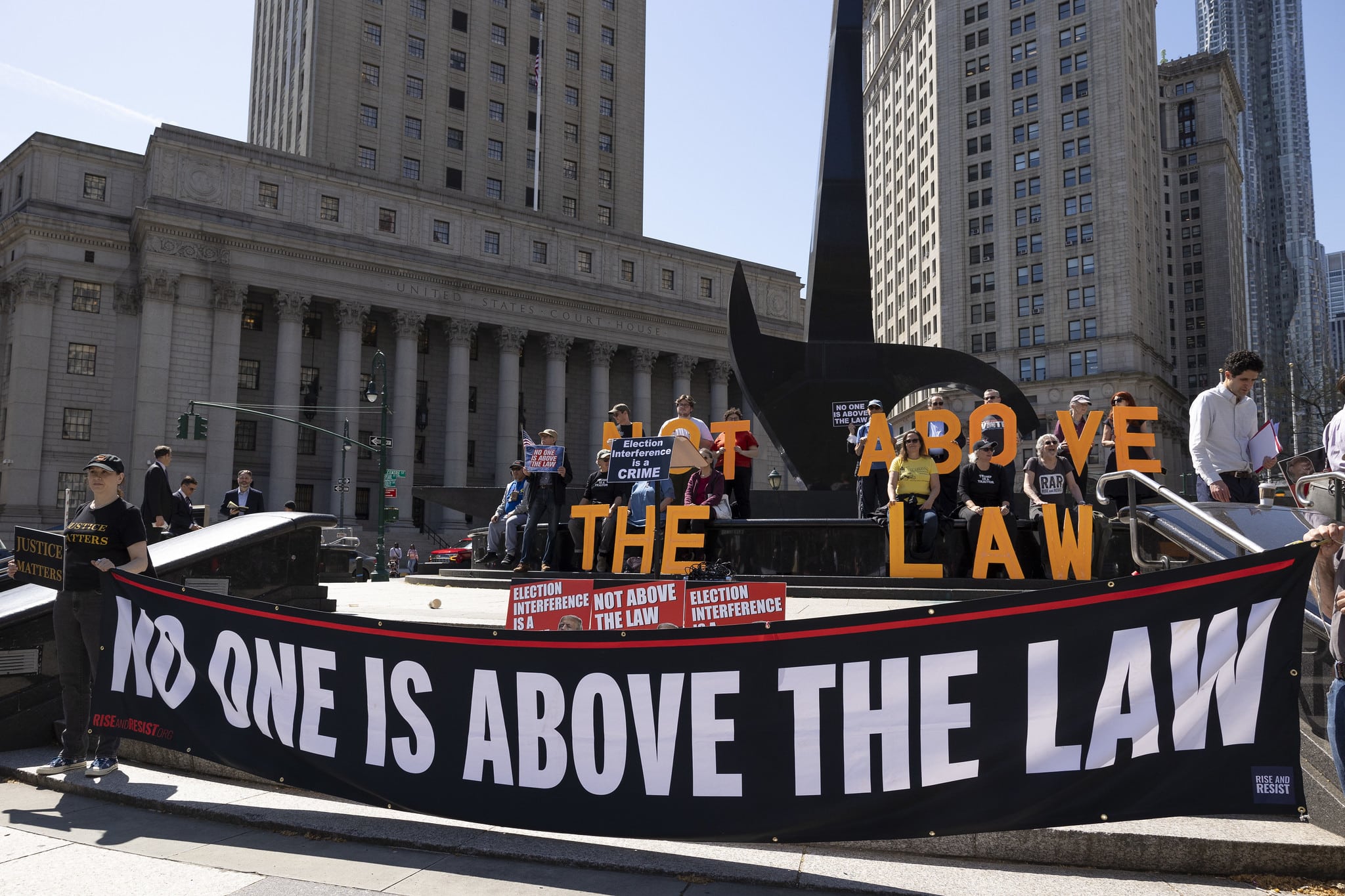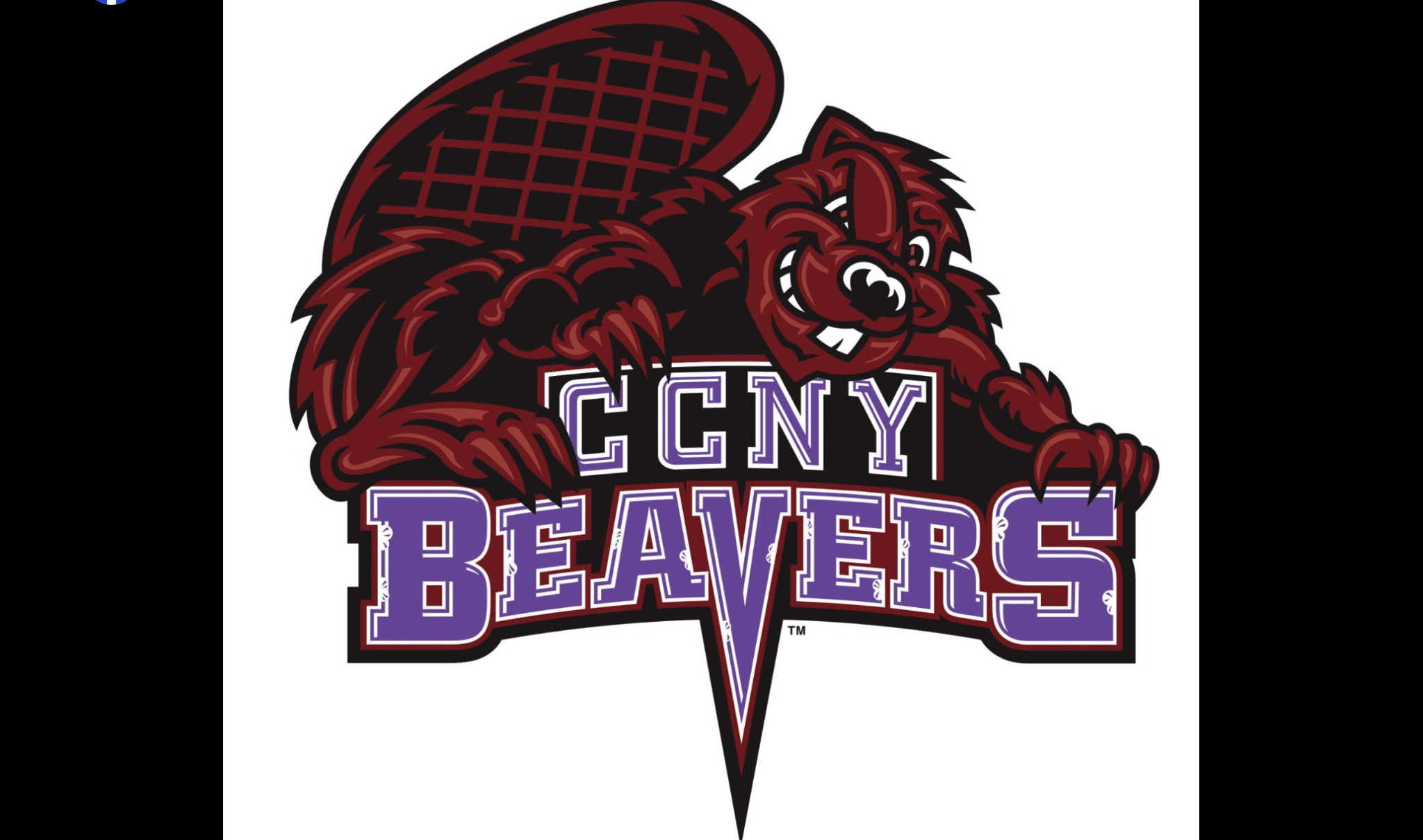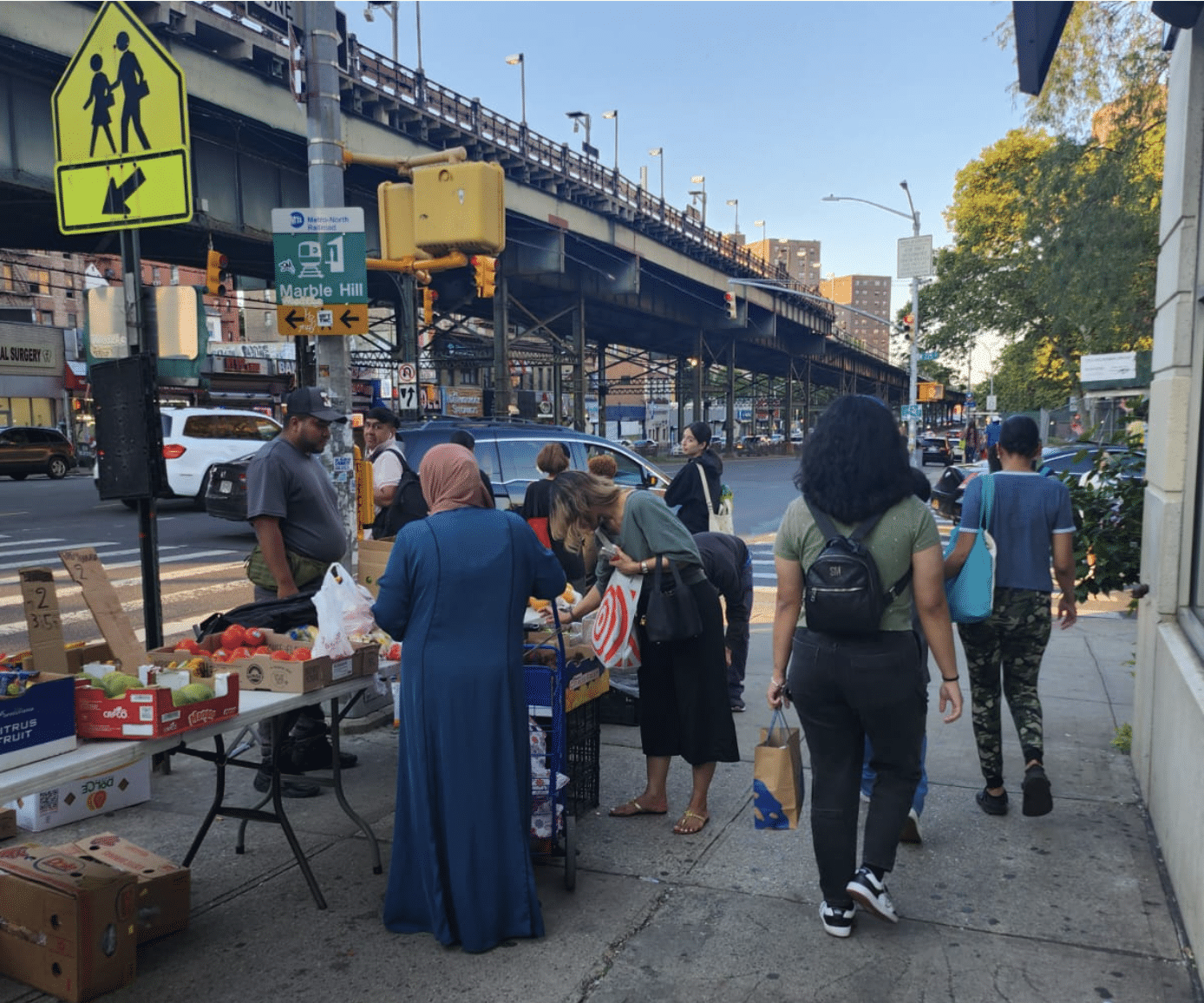Josmar Minimarket on 775 E 149th St, Bronx, NY 10455. Photo by Precious Utobunwa.
NEW YORK, N.Y.
Not long ago Precious Utobunwa, a junior at The City College of New York (CCNY) majoring in computer science, remembers paying four dollars for a gyro in the Bronx. Now he pays six or seven dollars. Since the pandemic, prices have continued to rise and the cost of putting food on the table is a problem for his family. “I’ve had to switch grocery stores multiple times to get cheaper meat to cook for my younger sister and brothers as well,” he said. That’s why Precious will not vote in the upcoming presidential election.
Utobunwa and other students at CCNY worry about inflation and the economy and question whether presidential candidates Vice President Kamala Harris and former President Donald Trump will do anything about it. Utobunwa blames the federal government’s 35-trillion dollar debt for smaller economic problems. He calls out, “…tens of trillions thrown in the toilet because of the constant wars.”
Others on the CCNY campus said they do plan to vote, and the economy is their big issue. Angel Villagomez, a senior majoring in architecture, shared his support for former President Trump in the upcoming presidential election. Villagomez, an immigrant and a citizen, believes the country is becoming less of a world power. “The investments in military contributions in other countries are leading the U.S. to divert their attention from what’s important for the country,” explained Villagomez. But the issues that trouble Villagomez are not having free healthcare, high taxes, and constant inflation. Villagomez worries about the working and middle class, which he identifies with. “My parents work over 40 hours a week and a majority of what they make is for rent, the water bill, and electric bill,” explained Villagomez. And for Villagomez, that is not the reason why many come to the U.S. He and others feel that the rich seem to get richer, and the poor seem to get poorer.
Nicholas Archacki, a senior majoring in architecture, agrees that former President Trump can handle the country’s economic problems best. “The current economic situation is troubling because with all the inflation that’s happening in the U.S. there isn’t much that we can do,” Archacki said. Archacki knows a lot of people who can’t afford housing and try to move out of their parents’ houses, but don’t earn enough money. “My friend Miles is working part-time at a deli, earns minimum wage, has to put all his earnings into his tuition, and therefore has to rely on his parents to provide a household,” explained Archacki. Since his biggest issue is inflation in the U.S., Archacki believes Trump is more likely to solve this issue.
Sarim Asrar, a graduate student majoring in computer science, shared a similar view about Trump’s leadership. “When Trump was in office, the U.S. was a leading power. They were always on the news,” explained Asrar. Today, Asrar sees the U.S. on the news for less appealing factors. “Inflation rates are at levels that were not here in over decades. The price of eggs has gone up. The price of meat has gone up. The price of gasoline has gone up,” explained Asrar. As an international student, Asrar believes the current economy goes against the image of U.S. prosperity.
Gabriel Alvarez, a junior majoring in sociology, recognized the power that Trump had when it came to controlling inflation. “During Covid, we were going through so much and the inflation rates back then were less than today,” explained Alvarez. There’s a feeling of disappointment when Alvarez hears the word economy. Not long ago, his parents could purchase double the amount of groceries than they can today. “What do avocados, lettuce, and strawberries all have in common? Well, their prices have drastically increased. People say it’s cheaper to cook at home, but is it really?” he asked rhetorically.
Students at CCNY are not the only ones who face the harsh reality of the price of food and basic items rising continuously. With the presidential election not far away, economic promises are pivotal if either candidate wants strong backing.
Tags: Election high grocery prices and presidential election inflation Junior Cruz Precious Utobunwa.
Series: Elections
